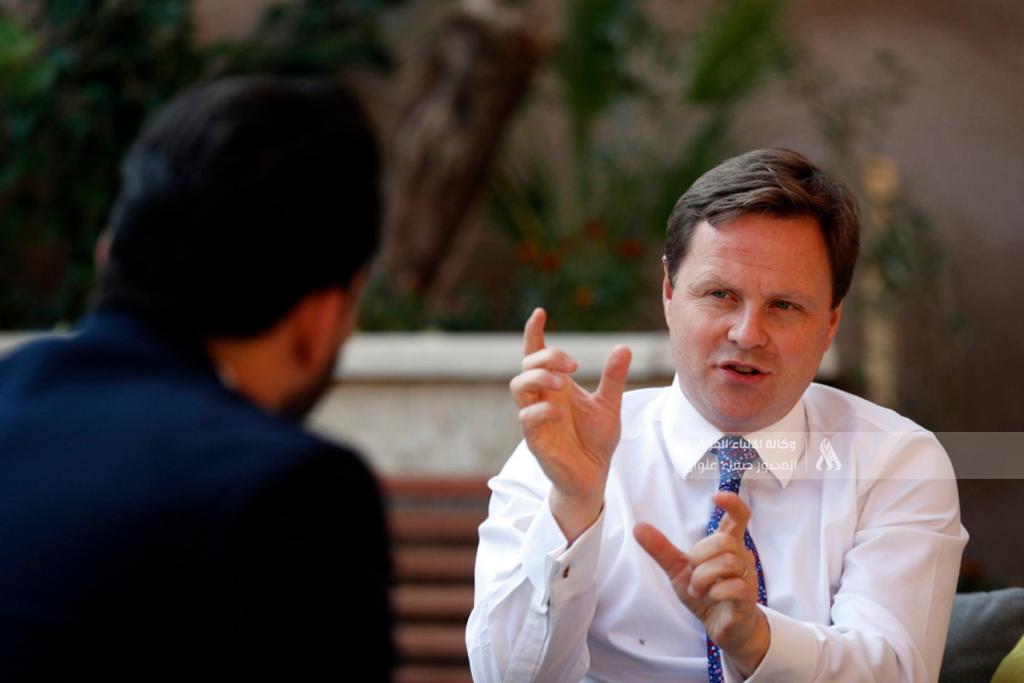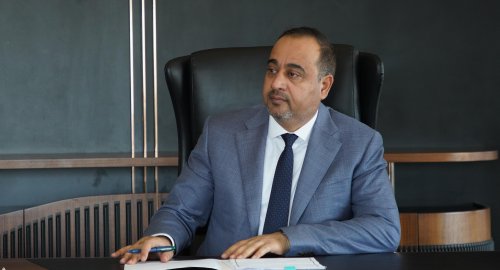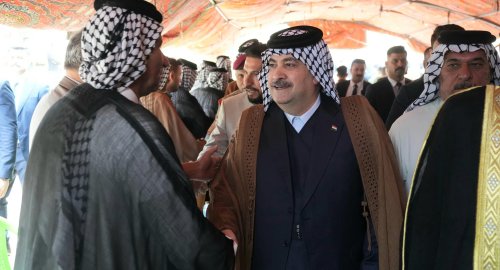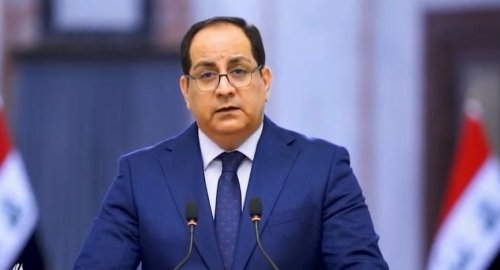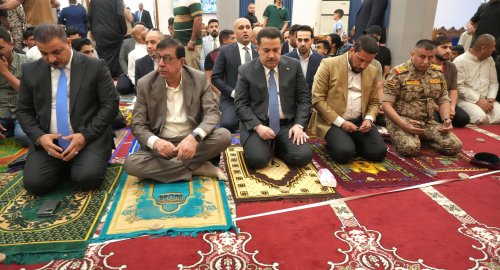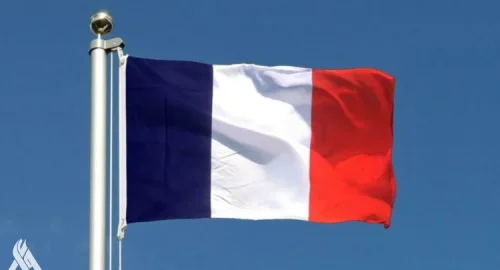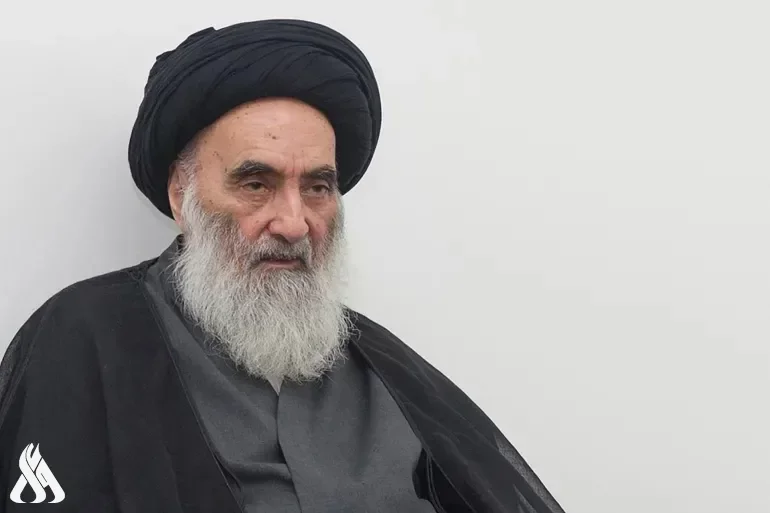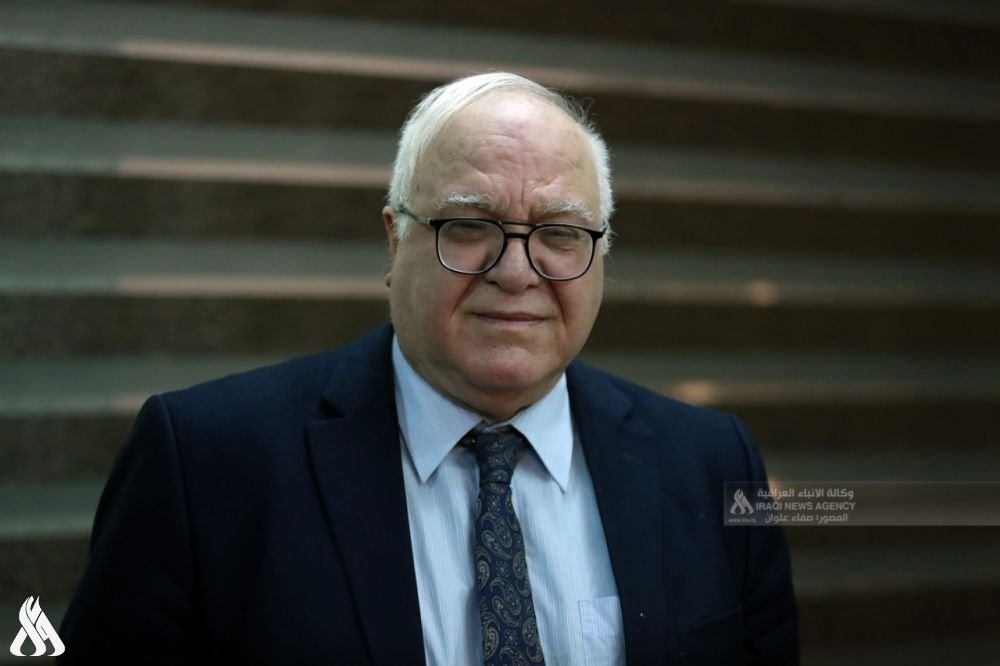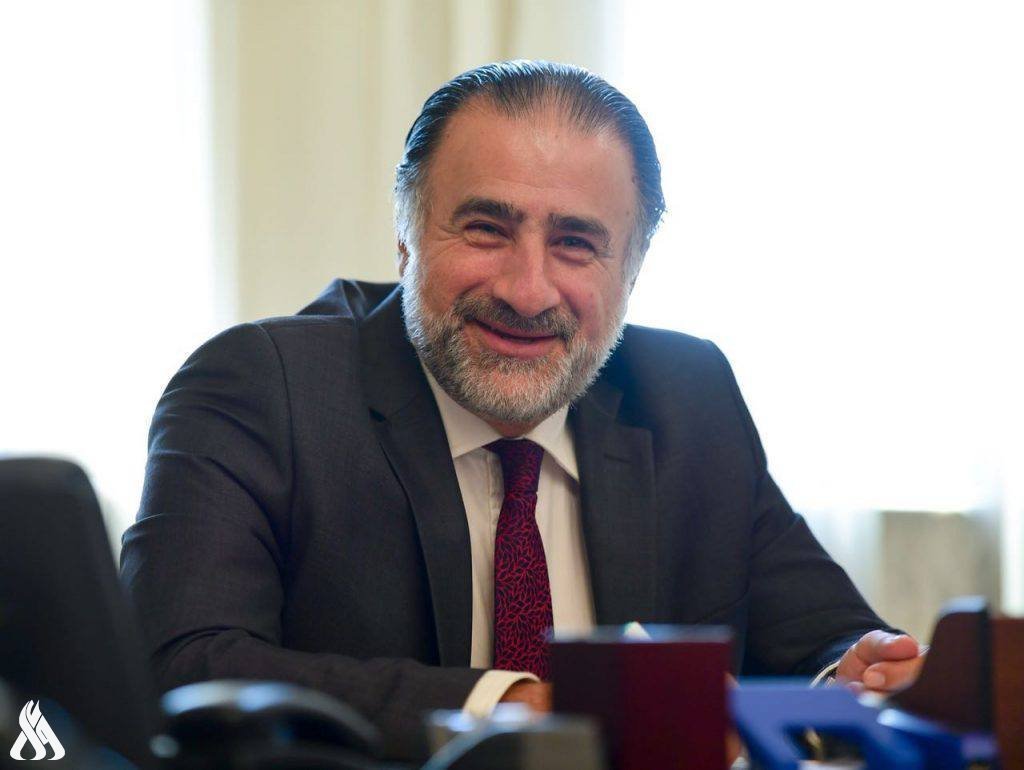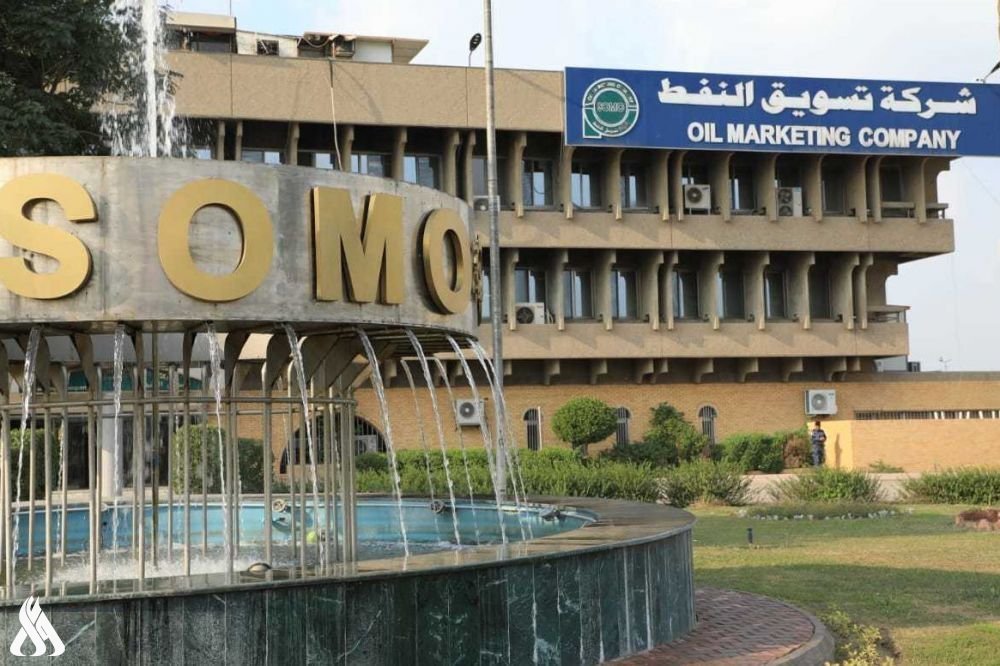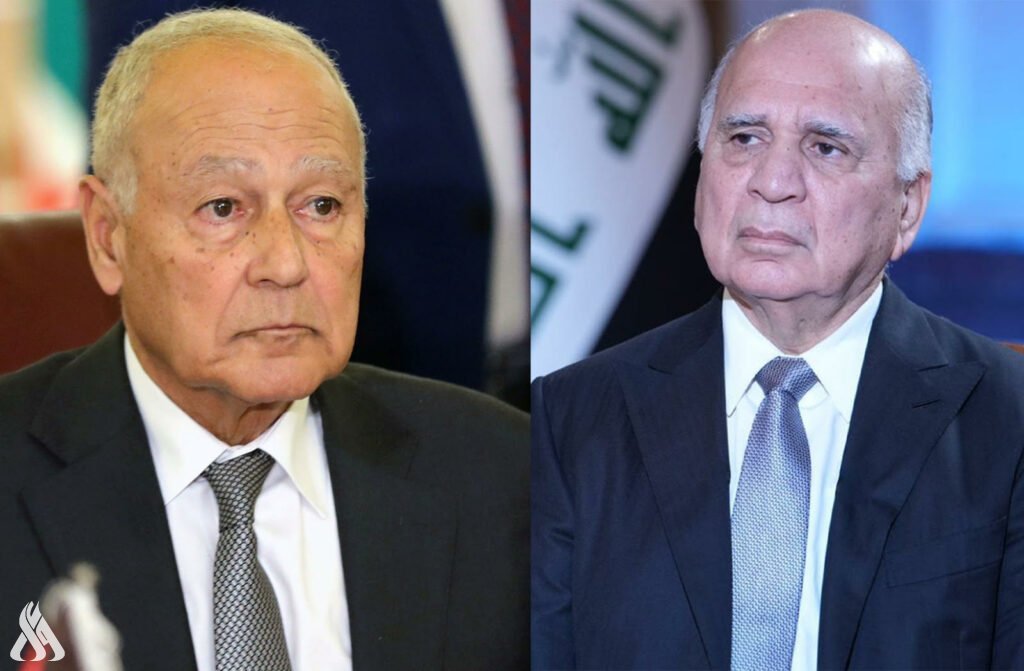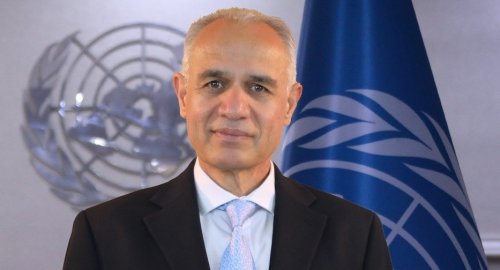
Isaczai: Climate change is the greatest threat Iraq has ever faced

- 12-11-2022, 12:35
Ghulam M. Isaczai the Deputy Special Rep of the Secretary-General and UN Resident and Humanitarian Coordinator Iraq.
When I traveled to Baghdad a month ago to assume my mission in Iraq in order to help in coordinating our support for the government and the people of Iraq, Mesopotamia was completely different from what I had in my mind two decades ago when I first worked in Iraq. Dust is everywhere stirred by hot air. There are also wide areas of desert in which palm trees exist, standing with patience against desertification. It wasn’t Mesopotamia which was described by history as the cradle of civilization.
And when I asked Iraqis and others who spent years here, I was told that it wasn’t likethis before. It’s clear that weather has bad effects on this country.
In my career, I have visited many countries and seen many problems, but the effect of climate change is massive here. This beautiful fertile land known through history by its civilizations that flourished around the great Tigris and Euphrates is now confronting the international climate crisis as the fifth of the most vulnerable countries in the world.
I was hoping to be more positive in my first speech to the Iraqi Public, but it is hard to hide reality. I must say that we’ve not lost everything, that there is hope in changing the course of things and the Iraqis should take the lead.
With holding the UN 27th conference for Climate Change COP27 in Sharm El-Sheikh, Egypt, it is important to discuss environmental issues and challenges in Iraq and what should be done in their concern.
COP27 will rely on the results of COP26 and respond to the intense international climate state of emergency, providing the most needed efforts to reduce emissions of greenhouse gasses and building the ability to adjust to the inevitable effects of climate change.
COP27 needs to fulfill its obligations to fund climate work in developing countries, including Iraq. COP27 is regarded as an important chance to governments of the world to hold on their climate obligations keeping to develop them ( nationally specified participations) in accordance with conveying awareness of climate change to Iraq again.
We are all aware of the problems here: extreme weather and climate changes such as heatwaves, heavy rains, rising temperatures, increased precipitation volatility and unpredictability, sandstorms and dust droughts, land degradation, inundation, and water scarcity.
In 2021, Iraq experienced its second driest season in 40 years due to a record drop in rainfall. Over the past 40 years, water flows from the Euphrates and Tigris rivers, which provide up to 98% of Iraq's water, have declined by 30-40%. The historic Marshes of the South, one of the wonders of natural heritage, are also drying up. Temperatures are rising in Iraq, with the highest temperature of about 54 degrees Celsius in Basra. Lower river water levels mean that seawater is rushing into the southern territory, with salinity threatening agriculture. The livelihoods and even the existence of entire societies are at stake.
Climate change in Iraq not only affects the agricultural sector, but also poses a serious threat to basic human rights, creates obstacles to sustainable development and exacerbates the environmental, security, political and economic challenges facing the country.
The data and the science are crystal clear. While climate change impacts many countries, some mitigation measures start at home. We must act now and start moving toward an economy that is resilient to climate change, while addressing adaptation and mitigation on an equal basis. We all have a responsibility to protect our common future and to work together for the greater good.
We can start with concrete steps in our homes. Everyone should make better and more responsible choices about what they eat, how they travel, how to conserve water and electricity, and what they buy.
Restoring the damaged ecosystems is an essential first step and managing water is the key. It will require diplomacy in managing water resources and addressing Iraq's water pollution and inefficiency problems. Thus, there should be no waste in using the water by leaving the taps open, overusing garden irrigation, and polluting rivers and streams.
Iraq needs to modernize and expand water treatment plants, repair old and damaged water infrastructure, impose restrictions on water use, invest in new irrigation and water harvesting infrastructure, and promote innovative irrigation practices. Dialogue and interaction with neighboring countries to ensure a fair share of water are crucial.
Benefiting from solar energy, which is cost-effective and available from sunlight most of the year, and improving energy efficiency by reaching the zero level in gas flaring while building renewable energy such as wind and hydropower, will help reduce toxic emissions and costs.
Organizing the campaigns for the environment, encouraging large-scale recycling and other good environmental practices, and engaging the youth who represent more than half of Iraq's population in climate-related issues from the very beginning of their lives, will ensure the success of any efforts to save our planet.
Public awareness - and accountability - can also encourage domestic and international private investment to empower green start-ups in the agriculture, waste, and energy sectors. The revival of Iraqi agriculture in the south, and the date industry, is one of the best examples.
There is still time to turn things around. With the support of Iraq's leaders and people to the actions that limit climate change effects, we have a real chance to prepare a better Iraq for the next generation. It is encouraging that Iraq, in addition to its accession to the Paris Agreement, is taking a leading role in its green paper to devote adaptation to climate in public policy.
We at the United Nations are ready to help the new Government of Iraq to meet its climate commitments through concrete steps, implementation, coordinated solutions, and communication at all levels.
Al-Sistani: Tomorrow, the 29th of Ramadan
- Local
- 25/03/29
SOMO: Iraq has the fourth-largest proven oil reserves in the world
- Economy
- 25/03/26

